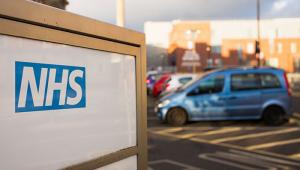In court this week, Ann Marie Rogers was fighting her primary care trust’s refusal to fund the breast cancer drug, Herceptin.
In the gallery, another patient, Liz Cooke, watched the proceedings, knowing that if Rogers loses, she too will have to seek judicial review.
And, at the time of writing, Jayne Sullivan was sitting it out in the lobby of the Welsh Assembly, protesting against her health authority’s decision not to fund the drug. A powerful group of breast cancer patients fighting what they say is a postcode lottery, with some women being prescribed Herceptin on exceptional grounds and others not.
Yet this is a row that was meant to be from bygone days. No longer were patients in one part of the country meant to be denied a treatment that another patient was receiving. That was the whole reason for setting up the National Institute for Health and Clinical Excellence. It bases its decisions on which drugs and technologies should be available on the NHS on the grounds of clinical and cost-effectiveness, not on where the patient might have the misfortune to live.
Something therefore has gone drastically wrong and the finger is pointing at the government. Ministers simply cannot stop interfering when the headlines
begin to look too awful, sending a signal to patient groups that they might just win if they ‘go public’ when they find themselves in the midst of a funding row.
It was the case of Barbara Clarke, the nurse from Somerset who was initially refused Herceptin, that set it all off. Health Secretary Patricia Hewitt released a stunningly disingenuous press statement last October saying: ‘Women who are diagnosed from this week onwards with early stage breast cancer will have the opportunity to be treated with the drug Herceptin.’
In fact, what was really going to happen was that all women with breast cancer would be tested for the HER2 receptor which causes the particular type of cancer treated by Herceptin. Hewitt was ignoring the obvious problem that Herceptin was not licensed in this country for the early-stage breast cancer that these women have.
She also went on to blame Nice for taking too long to make recommendations on whether it should be funded, again ignoring the fact that it was not licensed.
The result — a can of worms opened so wide it is impossible to see how it could ever be closed again. Take the recent professional and concerted campaign by the Alzheimer’s Society, hoping to persuade the organisation to overturn its ban on the use of certain drugs for the disease.
Although not quite David and Goliath or the little charity versus the corporate giant, the campaign the Alzheimer’s Society waged against Nice was impressive. It had clearly taken note of the Herceptin case. It, too, galvanised its members and the medical profession, who in turn very publicly attacked Nice’s decision to ban anti-cholinesterase treatments for the disease.
Last month, Nice agreed to a compromise that would allow the drugs to be given to those with moderate symptoms.
It has to be said that the campaigners are not happy with this outcome. One consultant psychiatrist described the decision as a ‘dog’s dinner’. But it spoke volumes about the pressure Nice is now under from patient groups no longer willing to take its decisions as final.
There were powerful and emotive interviews with the carers of Alzheimer’s patients in every section of the media. There were vociferous and eloquent physicians explaining why this decision was the wrong one. If the comment pages were anything to go by, the Alzheimer’s Society at least won a moral victory.
I suspect Nice is currently feeling like an abused spouse, cruelly battered by the people who are supposed to love it: patients and doctors. It had, after all, taken into account 80 separate studies and widely consulted on the Alzheimer’s drugs before reaching its initial decision.
But now it is caught in the middle between the secretary of state and/or patients’ groups — sometimes working together, sometimes apart. And while Nice would argue it is its job to listen to the patients, the bottom line is that it was established to take prescribing decisions out of the hands of politicians. And to avoid situations where only the patients who shout the loudest are treated.
This is not meant to be an apologia for Nice itself, which does, of course, have shortcomings. But the government’s blatant disregard of it has to stop.
Nice was — and should still be — a brilliant idea to deal with a health service that is cash-limited in a world where new, better and more expensive treatments are coming on line all the time.










